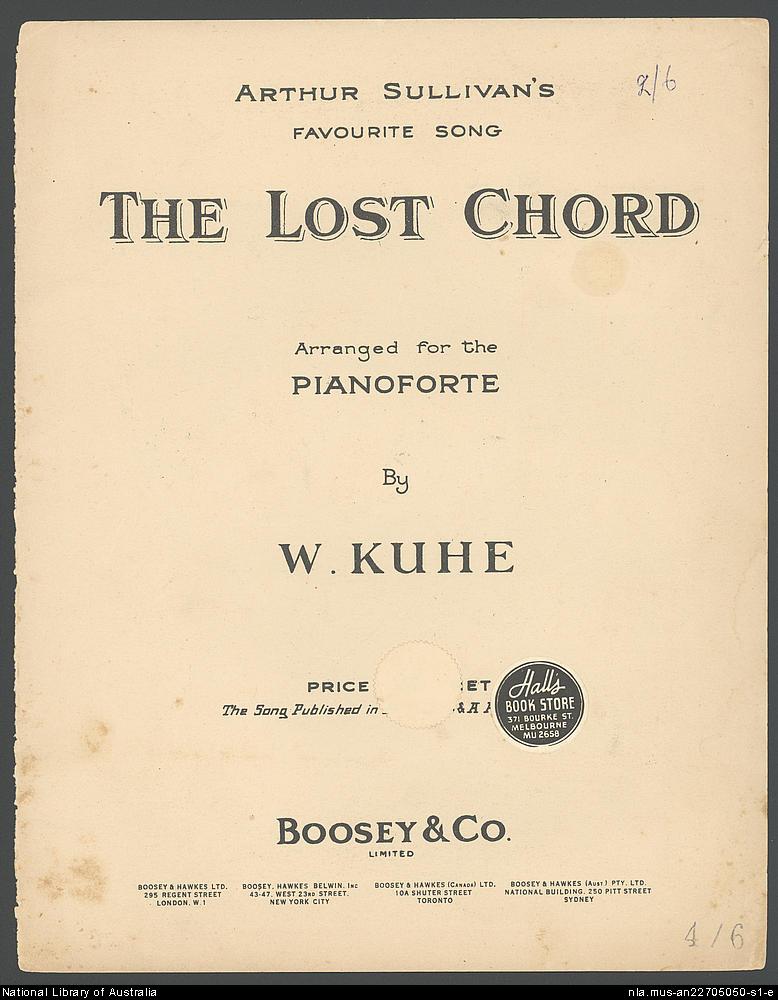|
A Lost Chord
Seated one day at the Organ,
I was weary and ill at ease,
And my fingers wandered idly
Over the
noisy keys.
I do not know what I was playing,
Or what I was dreaming then;
But I struck one chord of music,
Like
the sound of a great Amen.
It flooded the crimson twilight
Like the close of an angel's Psalm
And it lay on my
fevered spirit
With touch of infinite calm.
It quieted pain and sorrow,
Like love overcoming strife;
It
seemed the harmonious echo
From our discordant life.
It linked all perplexed meanings
Into one perfect peace,
And
trembled away into silence,
As if it were loathe to cease.
I have sought, but I seek it vainly,
That one lost
chord divine,
That came from the soul of the organ
And entered into mine.
It may be that Death's bright angel
Will
speak in that chord again,-
It may be that only in Heaven
I shall hear that grand Amen.
words: Adelaide A. Proctor
music: Sir Arthur Sullivan
|

|
| from the National Library of Australia |
1825 - 1864
English poet and reformer
and author of A Lost Chord
one half of the team of
Gilbert and Sullivan
and composer of the music
for A Lost Chord
recorded pre-1926
from a poem by
Adelaide Anne Procter. 1825-1864
|

